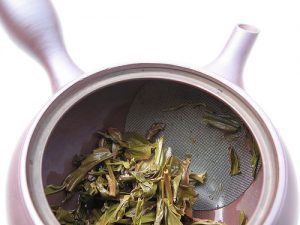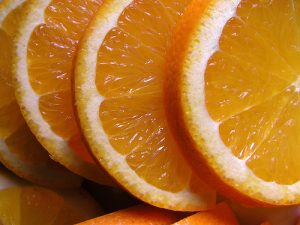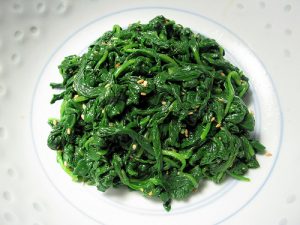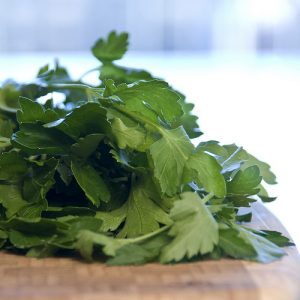
Most of the time we hear about EGCG and L-theanine content in green tea, but what about vitamins?
Vitamins aren’t as sexy because they are old news and we find them almost everywhere, but they are absolutely necessary.
Is green tea a significant source of vitamins? The short answer is yes. I’ll tell you which of them in a moment, so keep on reading.
What are vitamins?
Vitamins are organic compounds that our bodies either can’t synthesize, or do so insufficiently. Thus, they must be obtained from our diet.
As their name implies,vitamins are vital. Deficiency of a specific vitamin causes a respective illness. For example, vitamin C deficiency results in scurvy while a lack of vitamin B1 causes beriberi.
There are 13 vitamins in humans, and they are subdivided into either water-soluble or fat-soluble.

Vitamin C
Vitamin C plays a major role in collagen formation and is also an antioxidant.
Its recommended daily intake is 75 mg for females and 90 mg for males. Hence a male would need to eat about 150 gr of an orange for the day’s vitamic C.
100 grams of processed sencha leaves have about 250 mg of vitamin C!
Note that the sencha leaves are quite dry. Comparing the vitamin content of dried tea leaves with vegetables in terms of weight isn’t really fair because the water content in vegetables adds more weight.
Another thing to keep in mind is that if you brew a cup of sencha, say 100 ml, you only get 5 mg of vitamin C. Therefore for a good vitamin C intake you should consume the leaves as a whole, like when preparing matcha or funmatsucha.
Another interesting fact is that black and oolong tea leaves have a very low vitamin C content.
Vitamin E
Vitamin E is also an antioxidant and plays a role in enzymatic and neurological functions. The recommended daily intake is 15 mg per day for adults, which is about 57 gr of almonds. With sencha, you only need about 23 gr of leaves.
The catch is that vitamin E isn’t water soluble, so you can’t obtain it by steeping the leaves. As before, you’ll have to drink matcha or funmatsucha.

Vitamin B2
Vitamin B2 is also known as riboflavin and it is essential for many cellular processes. It also plays a key role in energy metabolism.
The recommended daily allowance of vitamin B2 for adult men and women are 1.3 mg/day and 1.1 mg/day, respectively.
Converting that quantity for men results in 700 gr of spinach. But you only need to eat 100 gr of sencha or matcha for 1.4 mg of vitamin B2.
Beta-carotene
Beta-carotene is one of the precursors of Vitamin A, which in turn is important for our vision and skin health.
Since it isn’t water soluble, don’t expect to receive it just by steeping tea leaves in boiling water.
Matcha is especially high in beta-carotene: four times the content of an equivalent weight of carrots!

Folic acid
Folic acid (vitamin B9) is needed to synthesize and repair DNA. It is also required for healthy blood cells.
400 μg (micrograms) is the recommended daily allowance of folic acid for adults. That’s about 263 grams of parsley. How much sencha leaves would you need? Only about 53 grams.
Remember that the best way to take advantage of vitamins in green tea is to eat the leaves themselves or drink them in powdered form.
I don’t recommend that you use tea leaves as your only source of these vitamins. It’s much better to have a balanced diet.
Source:
http://www.o-cha.net/teacha/kagaku/vitamin.html
Takehiko Yamamoto, Chemistry and applications of green tea, CRC Press, 1997





November 22, 2015
Excellent article, great information thanks
November 22, 2015
Thank you Annabel. I hope you found it useful.